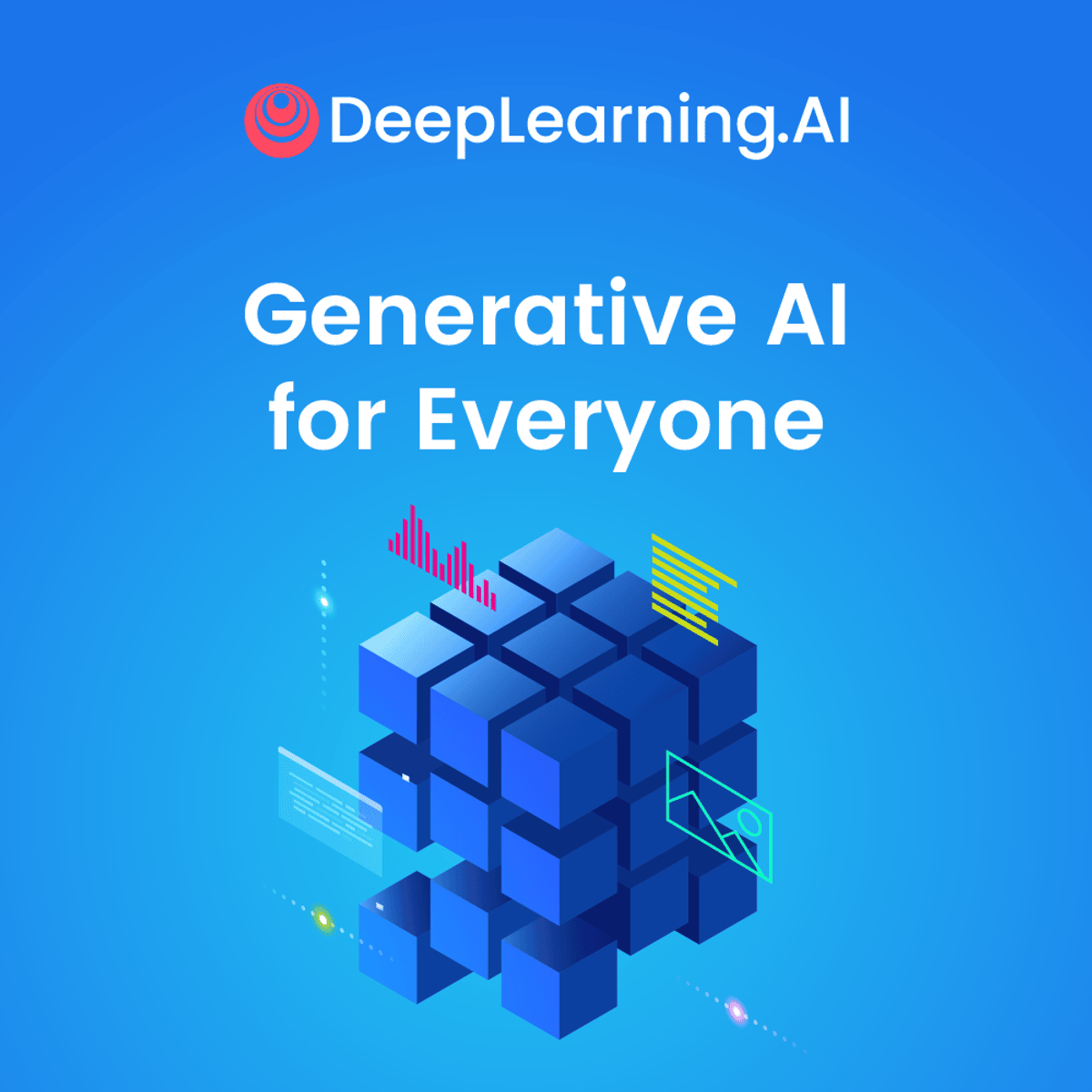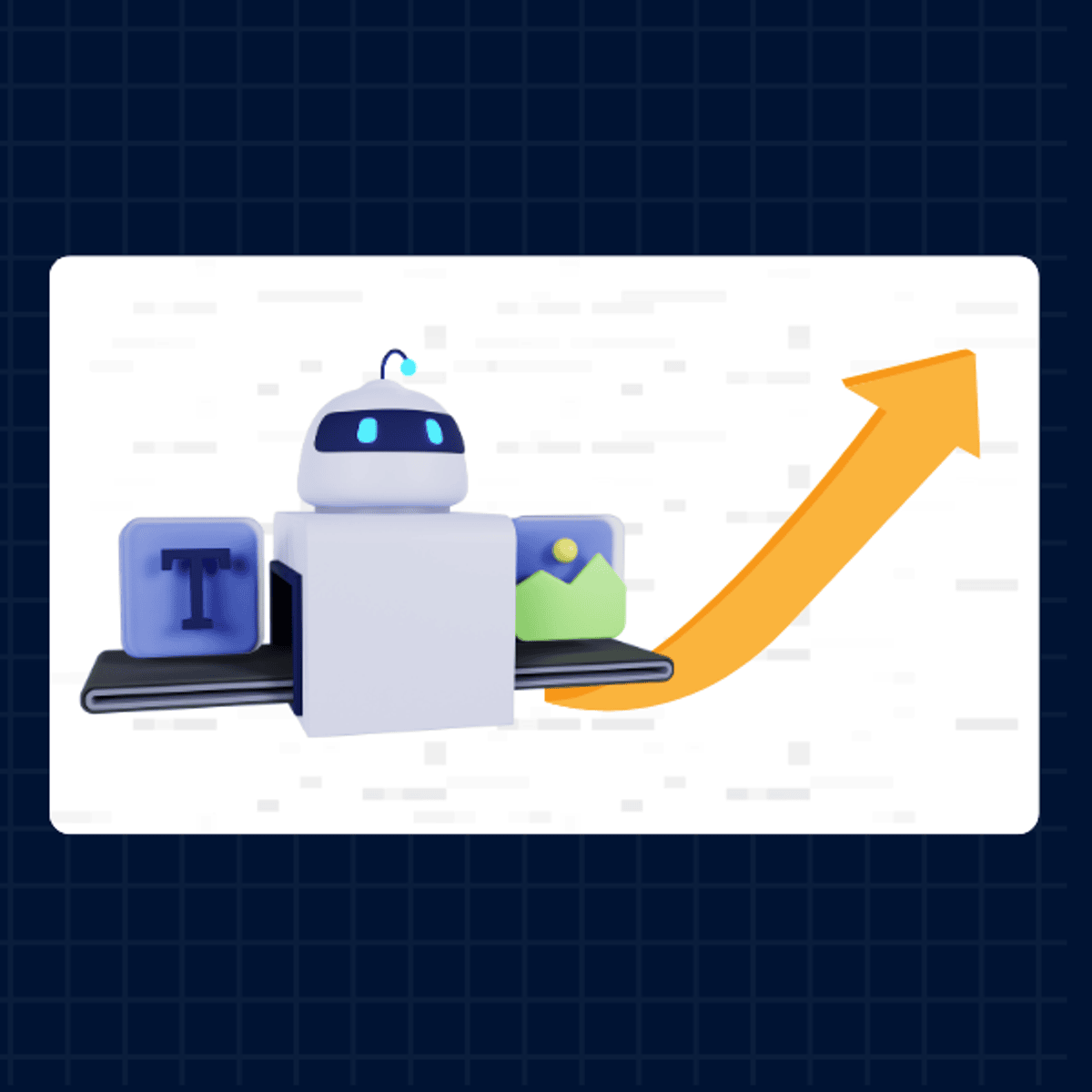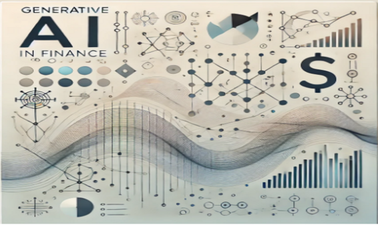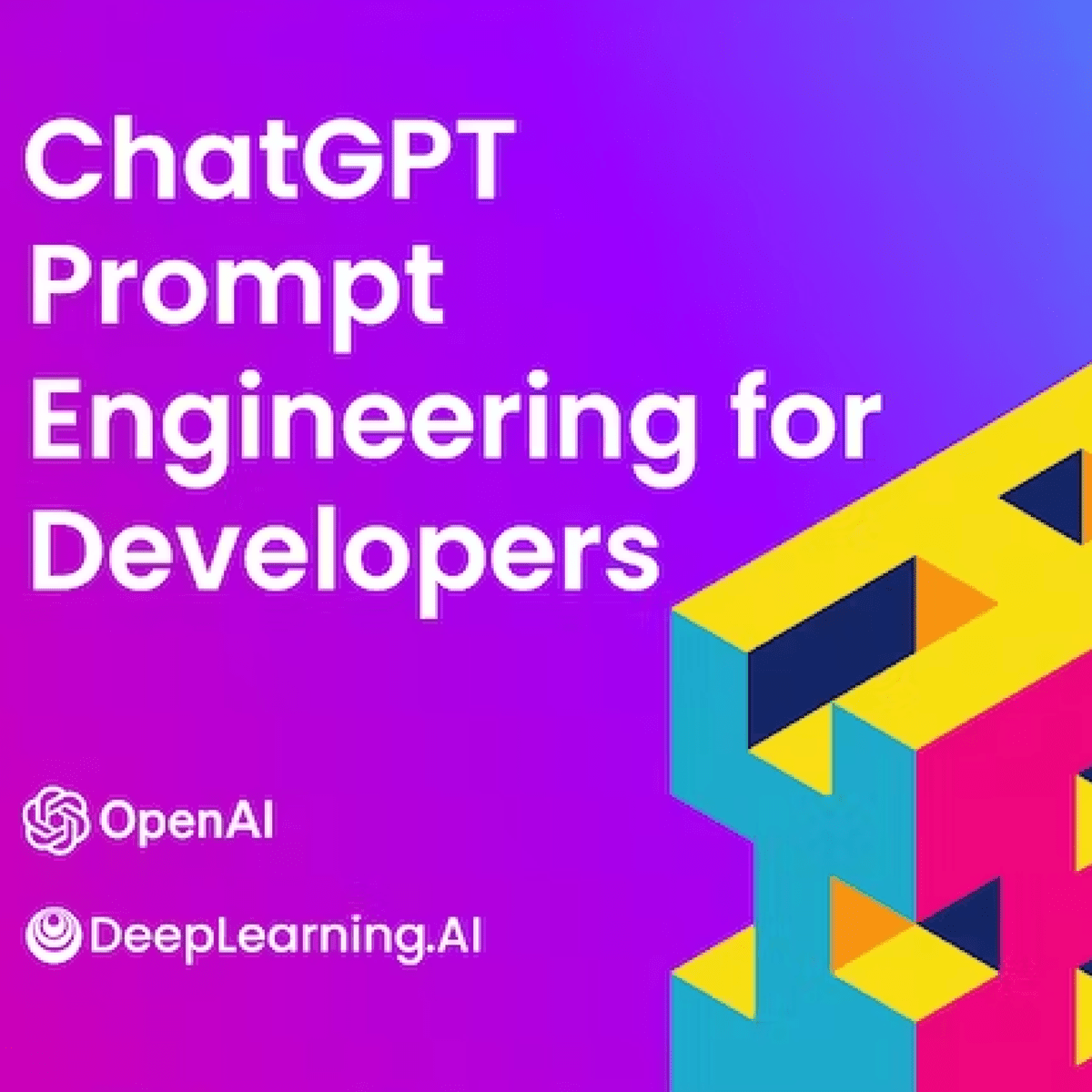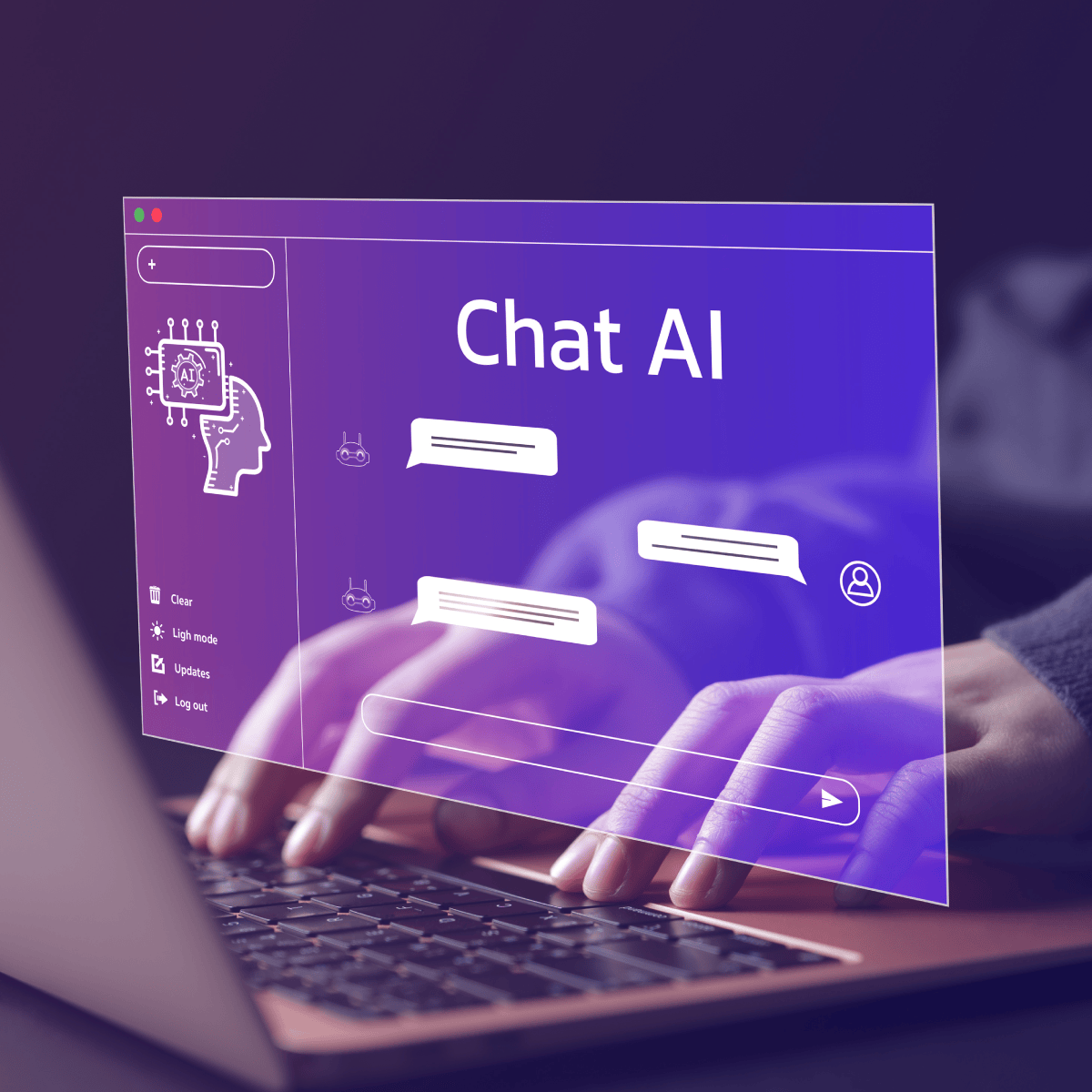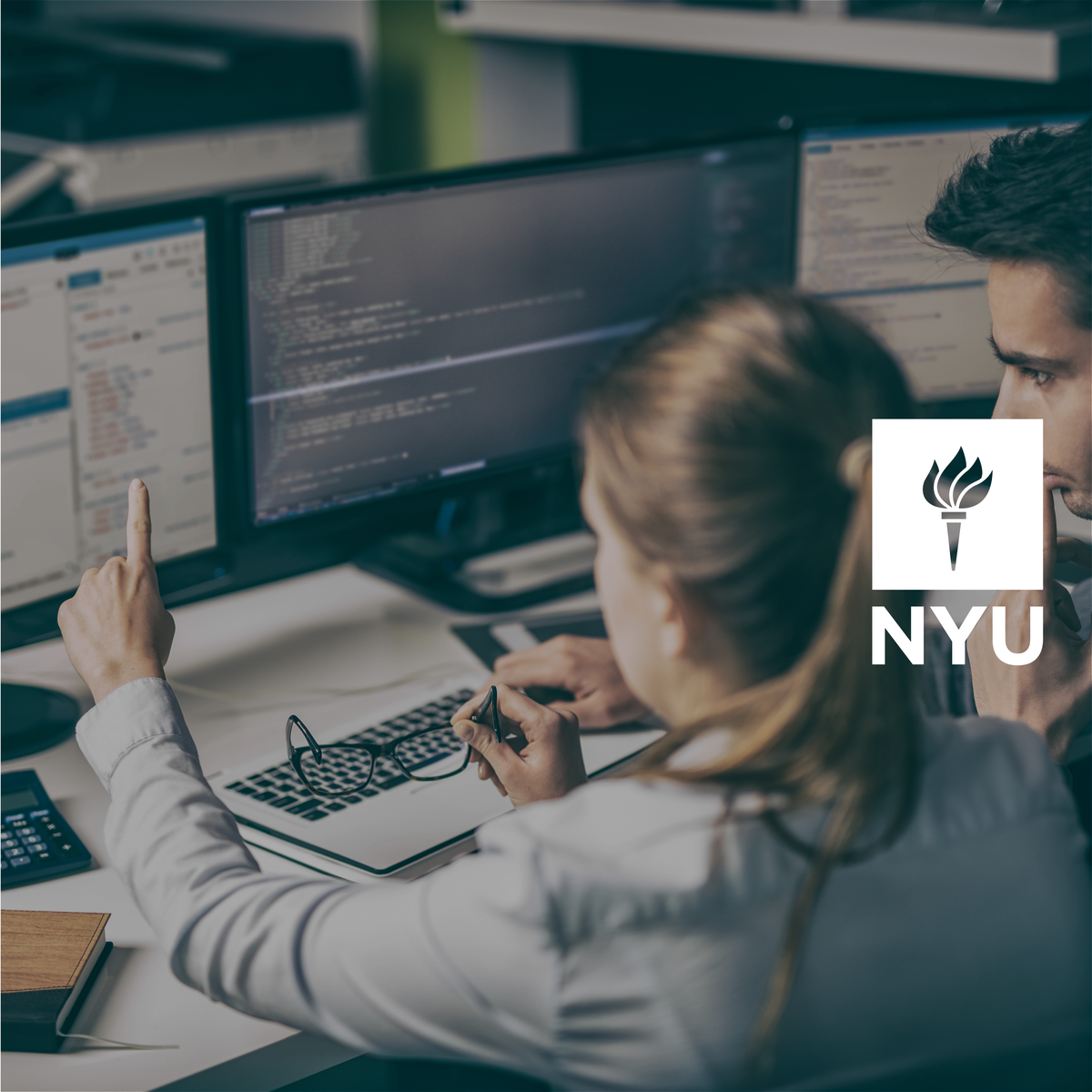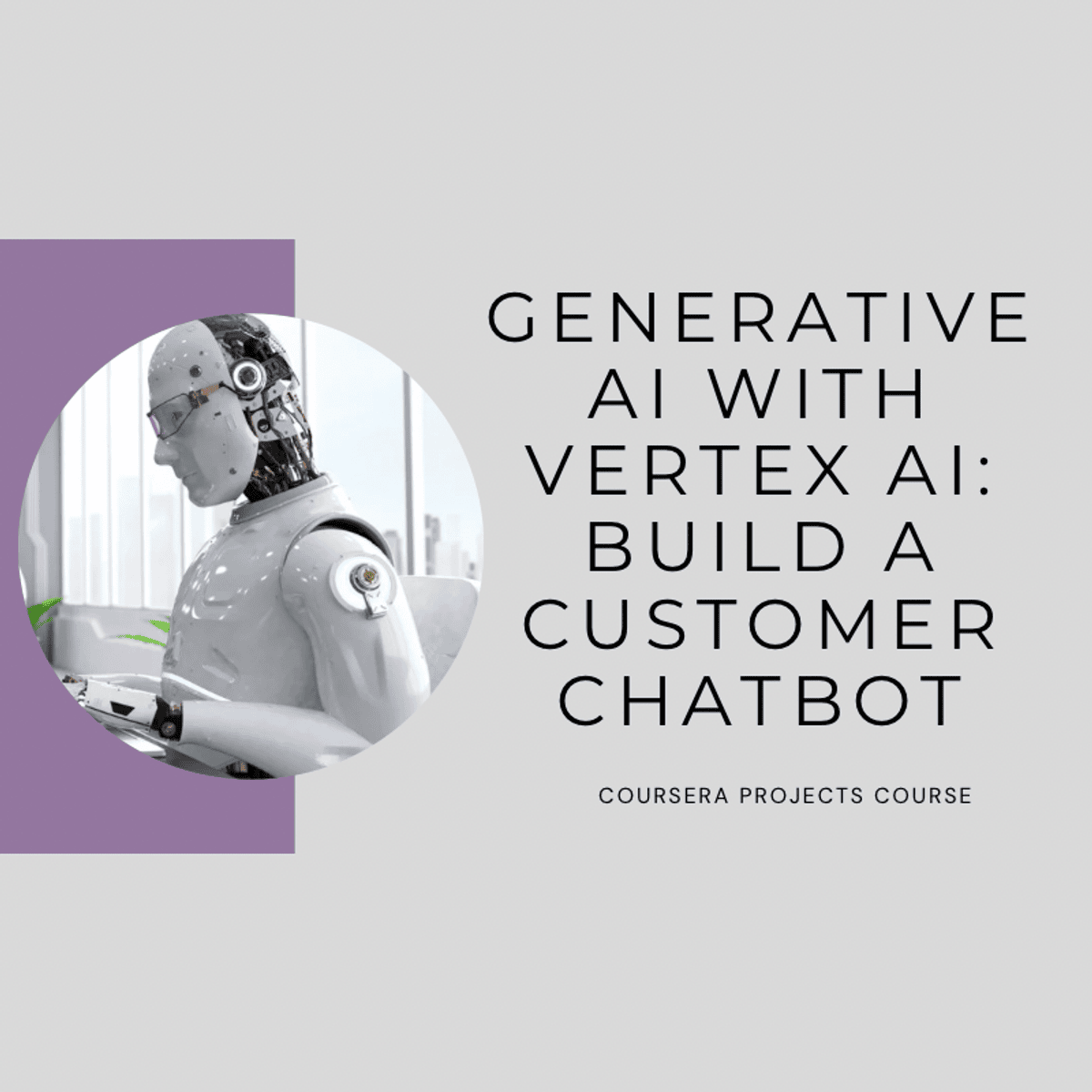Generative AI Specialist
Becoming a Generative AI Specialist: A Career Guide
Generative Artificial Intelligence, or Generative AI, represents a significant leap forward in AI capabilities. Unlike traditional AI that analyzes existing data, generative AI creates new content—text, images, music, code, and more—that resembles data it was trained on. A Generative AI Specialist is a professional who designs, builds, fine-tunes, and implements these powerful AI models. They work at the intersection of machine learning, data science, software engineering, and often, domain-specific expertise.
This rapidly evolving field offers exciting opportunities to work on cutting-edge technology with the potential to transform industries. Specialists might find themselves developing AI that assists artists in creating novel works, building chatbots that offer nuanced customer support, or designing systems that accelerate scientific discovery. The role often involves a blend of deep technical work, creative problem-solving, and a keen awareness of the ethical implications surrounding this powerful technology.
Introduction to Generative AI Specialists
What is Generative AI?
At its core, Generative AI learns patterns and structures from vast amounts of data and then uses that knowledge to generate entirely new, synthetic data. Imagine feeding an AI thousands of images of cats; a generative model could then create unique pictures of cats that have never existed before. Similarly, models trained on text can write articles, compose poetry, or generate computer code.
Key technologies underpinning Generative AI include complex neural network architectures like Transformers (powering models like ChatGPT), Generative Adversarial Networks (GANs), and Diffusion Models. These models often require significant computational resources and expertise to train and manage effectively.
Understanding these foundational concepts is the first step for anyone considering this career. It's a field built on sophisticated mathematics and computer science principles, but with tangible, often creative outputs.
These introductory courses provide a good overview of Generative AI concepts and their applications.
Key Responsibilities
A Generative AI Specialist's duties can vary significantly based on the role and organization but often involve a mix of technical development, research, and strategic thinking. Common responsibilities include designing, developing, and implementing generative AI models using techniques like GPT, GANs, or VAEs. This involves working with large datasets, preprocessing data, extracting features, training models, and evaluating their performance.
Specialists are also tasked with optimizing existing models for better performance, scalability, and efficiency. They conduct research to stay updated on the latest advancements in the field and identify opportunities to integrate new techniques into products or services. Defining governance frameworks, ensuring ethical and responsible AI use, and collaborating with stakeholders (data scientists, engineers, product managers) to translate business needs into AI solutions are also key parts of the role.
Essentially, they are responsible for the entire lifecycle of generative AI solutions, from conception and development to deployment, monitoring, and improvement, often acting as subject matter experts within their organizations.
Evolution and Importance
The field of Generative AI has exploded in recent years, driven by breakthroughs in model architectures, increased data availability, and more powerful computing hardware. What began as academic research has rapidly transitioned into practical applications across numerous sectors. This has created intense demand for professionals who understand how to build and leverage these technologies, making "generative AI modeling" one of the top fastest-growing skills.
Generative AI Specialists are becoming crucial in driving innovation and competitive advantage. Companies are using this technology to automate tasks, personalize customer experiences, create new products and services, and enhance creative processes. According to reports like those from McKinsey & Company, generative AI has the potential to add trillions of dollars in value to the global economy and significantly boost labor productivity.
As AI continues to advance, the role of the Generative AI Specialist will likely become even more critical. They are the architects of systems that are reshaping how we work, create, and interact with technology, making it a field with significant long-term relevance and impact. The global market size for Generative AI in jobs is projected to grow substantially, indicating strong future demand.
Role of a Generative AI Specialist
Day-to-day Tasks and Projects
The daily routine of a Generative AI Specialist often involves a mix of research, coding, data handling, and collaboration. They might spend time reading the latest research papers, experimenting with different model parameters, or writing code to implement or fine-tune models using frameworks like PyTorch or TensorFlow.
Data is central to generative AI, so specialists frequently work on acquiring, cleaning, and pre-processing large datasets suitable for training sophisticated models. They also design experiments to test model performance, analyze results, and iterate on their designs. Debugging complex AI models and optimizing them for efficiency and speed are also common tasks.
Projects can range from building internal tools to boost productivity (like AI-driven scripts or debugging automation), developing features for customer-facing products (like AI-powered writing assistants or image generators), to conducting foundational research aimed at pushing the boundaries of AI capabilities. The specific projects depend heavily on the industry and the company's goals.
Collaboration and Teamwork
Generative AI Specialists rarely work in isolation. They are typically part of larger teams, collaborating closely with various roles. Data scientists help in sourcing and preparing data, while machine learning engineers assist with model training infrastructure and deployment pipelines (MLOps).
Software engineers integrate the AI models into user applications, ensuring they function smoothly and scale effectively. Product managers provide direction on business requirements and user needs, helping to ensure the AI solutions deliver real value. Specialists may also work with UX/UI designers to create intuitive interfaces for AI-powered features and interact with business units to understand their needs.
Effective communication and teamwork are vital. Specialists need to translate complex technical concepts into understandable terms for non-technical stakeholders and collaborate effectively to bring AI projects from concept to production.
These courses cover the intersection of data science, machine learning, and generative AI.
Research vs. Application Focus
Within the field, roles can lean more towards either research or application. Research-focused specialists, often found in academic labs or dedicated corporate research divisions, concentrate on developing novel AI techniques, publishing papers, and advancing the fundamental understanding of generative models. These roles typically require advanced degrees (PhD).
Application-focused specialists, more common in industry settings, concentrate on leveraging existing AI techniques and models to solve specific business problems or build product features. They might fine-tune pre-trained foundation models, integrate AI into existing systems, and focus on practical implementation, scalability, and reliability. Their goal is often to add measurable value to the business.
While distinct, these paths often overlap. Application-focused roles require a solid understanding of the underlying research, and researchers benefit from understanding real-world application challenges. Many specialists find themselves bridging both worlds throughout their careers.
Common Industries
Demand for Generative AI Specialists spans a wide array of industries. The technology sector is a major employer, with companies developing AI platforms, cloud services, and AI-powered software. Creative industries, including entertainment, gaming, and advertising, use generative AI for content creation, special effects, and personalized experiences.
Healthcare and life sciences leverage generative AI for drug discovery, medical image analysis, and generating synthetic patient data. Financial services employ it for fraud detection, algorithmic trading, and personalized financial advice. E-commerce and retail use it for personalized recommendations, marketing content generation, and virtual try-on experiences.
Even traditional industries like manufacturing and automotive are exploring generative AI for design optimization, predictive maintenance, and process automation. Marketing currently holds a large share of the generative AI job market, utilizing it for content generation and customer interaction improvements.
These courses explore applications in specific domains:
Required Skills and Competencies
Technical Skills Foundation
A strong technical foundation is essential. Proficiency in programming, particularly Python, is standard, along with experience using core data science libraries (like NumPy, Pandas) and machine learning frameworks (PyTorch, TensorFlow, Keras).
Deep understanding of machine learning concepts, including supervised and unsupervised learning, and various neural network architectures (CNNs, RNNs, Transformers), is crucial. Specific knowledge of generative models like GANs, VAEs, and Diffusion Models is key. Experience with Natural Language Processing (NLP) techniques is often required, especially for roles involving text generation, and NLP is a dominant technology area within the GenAI job market.
Familiarity with cloud platforms (AWS, Google Cloud, Azure) and their AI/ML services is increasingly important for training and deploying large models. Skills in model fine-tuning and techniques like Retrieval-Augmented Generation (RAG) and working with vector databases are also highly valued.
These courses cover essential technical skills, from foundational machine learning to advanced transformer models and fine-tuning.
These books provide in-depth knowledge on relevant technical topics, including Python and TensorFlow implementations.
Mastering Prompt Engineering
As generative AI models like LLMs become more powerful and accessible, the ability to effectively communicate with them is paramount. This is the domain of prompt engineering – the art and science of crafting inputs (prompts) to guide AI models toward generating desired, accurate, and relevant outputs. It's a critical skill for maximizing the value derived from these powerful tools.
Effective prompt engineering involves understanding how different models interpret instructions, experimenting with phrasing, structure, context, and parameters (like temperature), and iteratively refining prompts to achieve specific goals. Techniques range from simple zero-shot prompting to more complex methods like few-shot prompting, chain-of-thought prompting, and using specific prompt patterns (like Persona or Question Refinement).
This skill is vital not just for specialists building or fine-tuning models, but also for developers integrating AI into applications and end-users leveraging AI tools for tasks like content creation, data analysis, coding assistance, or creative exploration. It helps unlock the nuanced capabilities of LLMs and mitigate potential issues like inaccuracies ("hallucinations") or biases.
The growing number of specialized courses highlights the increasing importance of prompt engineering as a distinct and valuable skill set within the generative AI landscape.
These courses offer focused training on prompt engineering techniques.
This book offers further insights into prompt engineering for generative AI.
Soft Skills
Technical prowess alone isn't enough. Creativity is vital for envisioning novel applications of generative AI and solving complex problems in innovative ways. Strong analytical and problem-solving skills are needed to debug models, interpret results, and overcome technical hurdles.
Communication skills are crucial for collaborating with team members from diverse backgrounds and explaining complex AI concepts to non-experts. The ability to articulate the capabilities and limitations of AI models is essential for managing expectations and ensuring responsible use. Public speaking and stakeholder management are also becoming valuable.
Ethical reasoning is increasingly important. Specialists must be mindful of potential biases in data and models, consider the societal impact of their work, and advocate for responsible AI development practices. Adaptability, resilience, curiosity, and a proactive continuous learning mindset are also key in this rapidly changing field.
Domain-Specific Knowledge
While core AI skills are transferable, expertise in a specific domain can be a significant advantage. Understanding the nuances, challenges, and data types of a particular industry (e.g., healthcare, finance, art, game development) allows specialists to develop more effective and relevant AI solutions.
For example, a specialist working in healthcare might need knowledge of medical imaging formats or clinical terminology. Someone in finance might need an understanding of market dynamics or regulatory compliance. A specialist in the creative industries might benefit from a background in art, music theory, or narrative design.
This domain knowledge helps in formulating problems effectively, selecting appropriate data, interpreting model outputs in context, and communicating value to stakeholders within that industry. While not always a strict requirement for entry-level roles, it becomes increasingly valuable for career progression and specialization.
These courses focus on applying AI/ML in specific domains like healthcare and finance.
Continuous Learning Requirements
Generative AI is one of the fastest-moving fields in technology, with a high rate of skill disruption predicted. New research papers, model architectures, and tools emerge constantly. Staying current requires a strong commitment to continuous learning and adaptability.
This involves regularly reading academic papers (often from sources like arXiv), following key researchers and labs, experimenting with new tools and frameworks (like LangChain, Hugging Face), attending conferences (like NeurIPS, ICML, CVPR), and engaging with the broader AI community online.
Online courses, tutorials, and documentation are invaluable resources for picking up new skills and understanding emerging techniques. Embracing lifelong learning isn't just beneficial; it's a necessity for maintaining relevance and effectiveness as a Generative AI Specialist. AI literacy itself is a rapidly growing requirement across many roles.
OpenCourser's platform makes it easy to find relevant learning materials. You can browse the Artificial Intelligence category or use the search function to find courses on specific topics like LLMs or diffusion models. Saving courses to your list helps organize your learning path.
Formal Education Pathways for Generative AI Specialists
Relevant Degrees
A bachelor's degree in Computer Science, Data Science, Artificial Intelligence, Statistics, Mathematics, Cognitive Science, or a related quantitative field typically provides the necessary foundational knowledge. Coursework in algorithms, data structures, calculus, linear algebra, probability, and statistics is essential.
Many specialists, particularly those aiming for research roles or more senior positions, pursue advanced degrees. A Master's or PhD in Computer Science, AI, Machine Learning, or a related specialization allows for deeper study and independent research. These programs often offer specialized tracks in areas like NLP, computer vision, or robotics.
While a degree provides a structured path, it's increasingly recognized that demonstrated skills and project experience can be equally, if not more, important, especially for application-focused roles. However, for cutting-edge research, advanced academic qualifications remain highly advantageous.
These courses cover mathematical foundations crucial for AI/ML.
PhD Pathways for Research Roles
A Doctor of Philosophy (PhD) is often a prerequisite for roles focused purely on research and development in Generative AI. PhD programs involve several years of intensive study and original research under the guidance of faculty advisors, culminating in a dissertation that contributes new knowledge to the field.
During a PhD, students delve deeply into theoretical foundations, develop advanced mathematical and programming skills, and learn to design, execute, and publish high-quality research. They gain expertise in specific subfields and build connections within the academic community.
Graduates with PhDs are sought after for positions in university faculty, industrial research labs (at companies like Google, Meta, Microsoft, OpenAI), and specialized AI startups aiming to push the boundaries of the technology. The rigorous training equips them to tackle fundamental challenges and lead innovation in the field.
University Courses and Projects
University curricula relevant to Generative AI typically include courses in Machine Learning, Deep Learning, Natural Language Processing, Computer Vision, Probability and Statistics, and Advanced Algorithms. Specialized electives might cover topics like Reinforcement Learning, AI Ethics, or specific AI application domains.
Capstone projects or theses provide opportunities for students to apply their knowledge to substantial problems. Examples relevant to Generative AI could include building a system to generate realistic synthetic data for training other models, developing a novel text-to-image generation technique, creating an AI agent capable of writing code or music, or exploring bias mitigation strategies.
These projects not only deepen understanding but also serve as valuable portfolio pieces when seeking internships or full-time positions. Engaging in research projects with faculty members can also provide invaluable experience, particularly for those considering graduate studies.
Courses covering core machine learning concepts are essential building blocks.
These books offer guidance relevant to educators and researchers using Generative AI.
Online and Self-Directed Learning
Viability of Online Learning
Online courses offer a flexible and accessible way to acquire the skills needed for a career in Generative AI. They are suitable for building foundational knowledge, supplementing formal education, and enabling career transitions. Many high-quality courses cover everything from Python programming and machine learning fundamentals to advanced topics like transformer architectures and model fine-tuning.
Platforms like Coursera, edX, Udacity, and Udemy host courses taught by university professors and industry experts, often from leading institutions and companies. These courses can provide structured learning paths, hands-on labs, and sometimes even certifications, allowing learners to acquire practical skills at their own pace. OpenCourser helps learners navigate these vast options.
While online learning requires discipline and self-motivation, it's a viable pathway, especially when combined with practical projects. Many successful AI practitioners have leveraged online resources extensively to build their expertise, sometimes even entering the field without a traditional computer science degree by showcasing demonstrated skills.
These resources provide foundational introductions suitable for online learning.
Core Topics for Self-Study
For those pursuing self-directed learning, focusing on core topics is key. Start with strong programming fundamentals, especially in Python. Master the basics of machine learning, including supervised and unsupervised learning, model evaluation, and core algorithms. Strong foundations in mathematics (linear algebra, calculus, probability, statistics) are also crucial.
Dive deep into deep learning, understanding neural networks, backpropagation, and regularization techniques. Focus specifically on architectures relevant to generative AI: Transformers (for sequence data like text), GANs (often for images), and Diffusion Models (increasingly popular for high-fidelity generation). Understanding Large Language Models (LLMs) is particularly important.
Practical skills like prompt engineering, fine-tuning pre-trained models (using platforms like Hugging Face), understanding RAG techniques, and working with vector databases are crucial for building real-world applications. Familiarity with cloud AI services and MLOps principles is also beneficial.
These courses cover core generative AI techniques and platforms.
This book specifically covers LangChain, a popular framework.
Portfolio Building Through Projects
Theoretical knowledge is important, but practical application is what truly demonstrates competence. Building a portfolio of personal projects is arguably the most critical aspect of self-directed learning and career preparation in AI, especially for those without traditional degrees.
Projects allow you to apply learned concepts, encounter real-world challenges, and showcase your skills to potential employers. Choose projects that genuinely interest you and align with the type of role you aspire to. Examples could include building a text summarizer, creating an image style transfer tool, developing a chatbot using RAG, fine-tuning a language model for a specific task, or even contributing to an open-source AI project.
Document your projects thoroughly on platforms like GitHub, explaining your approach, the challenges faced, the results achieved, and the code itself. A well-documented portfolio provides tangible evidence of your abilities, often weighing more heavily than certifications alone in hiring decisions.
These courses involve hands-on projects to build practical skills.
This book discusses RAG-driven generative AI, relevant for portfolio projects.
Certifications vs. Skill Demonstration
Certifications, whether from online course platforms or cloud providers (like AWS Certified AI Practitioner or Azure AI Engineer Associate), can signal foundational knowledge and commitment to learning. They can be a useful addition to a resume, particularly for those transitioning careers or lacking formal degrees in the field.
However, in the AI field, certifications generally carry less weight than demonstrated skills through projects and practical experience. Employers are primarily interested in what you can *do*. A strong portfolio showcasing your ability to build, train, evaluate, and deploy AI models is typically more compelling than a list of certificates.
Think of certifications as supplementary evidence rather than the primary goal. Focus first on acquiring deep understanding and practical skills through learning and building, then consider certifications that align with your chosen tools or platforms (like cloud provider certifications if aiming for deployment roles). Some certifications focus on specific skills like prompt engineering or platforms like Azure OpenAI or NVIDIA's tools.
These courses help prepare for specific certifications or cover essential techniques.
You can find more guidance on leveraging online learning effectively in the OpenCourser Learner's Guide.
Career Progression and Opportunities
Entry-Level Roles
Individuals entering the field might start in roles such as AI Engineer, Machine Learning Engineer, Data Scientist (with an AI focus), or Research Assistant. These positions typically involve implementing existing algorithms, supporting senior specialists, preparing data, running experiments, and contributing to model development or deployment.
A strong foundation in programming, machine learning fundamentals, and familiarity with relevant tools are usually required. A bachelor's or master's degree in a relevant field is common, but a strong portfolio can sometimes substitute for formal qualifications, particularly in application-focused roles. Some junior roles emphasize the willingness to learn and grow within a team.
Entry-level positions offer valuable hands-on experience and mentorship opportunities, providing a stepping stone towards more specialized or senior roles within the Generative AI domain. Entry-level salaries in the US can vary but often start competitively compared to general software roles, with potential starting points around $80k-$100k or more depending on location and company, though global ranges differ significantly.
Mid-Career Specialization
With experience (typically 3-6 years), specialists often deepen their expertise in particular areas. This might involve specializing in a specific type of model (e.g., becoming an expert in LLMs or Diffusion Models), a particular application domain (e.g., AI for drug discovery, generative art), or a specific technical aspect (e.g., model optimization, AI ethics, MLOps for generative models).
Mid-career roles might include titles like Senior Generative AI Specialist/Engineer, Lead AI Engineer, or NLP Specialist. Responsibilities often expand to include project ownership, model deployment, mentoring junior team members, making architectural decisions, and tackling more complex technical challenges. Salaries see significant growth, potentially reaching the $100k-$160k range or higher in the US, with variations globally.
Continuous learning remains crucial at this stage to keep up with advancements and maintain specialized expertise. Building a track record of successful projects and contributions becomes increasingly important for career growth.
Leadership Roles
Experienced Generative AI Specialists (often 5-8+ years) can progress into leadership positions. These might include roles like AI Product Manager, Principal AI Scientist/Engineer, or AI Team Lead/Manager, potentially leading a Center of Excellence (CoE).
Responsibilities can include setting technical direction, defining AI strategy, managing teams, mentoring staff, overseeing governance and ethical considerations, making architectural decisions, and representing the team's work to senior leadership or external stakeholders. These roles require not only deep technical expertise but also strong leadership, strategic thinking, communication, and project/resource management skills.
Salaries for senior and leadership roles can be very high, often exceeding $150k-$200k in the US, and potentially much higher at top tech companies or in specialized niches like prompt engineering leadership, especially when including bonuses and stock options.
These resources offer perspectives relevant to leadership in the AI space.
Freelance and Consulting Opportunities
The high demand and specialized nature of Generative AI expertise also create significant opportunities for freelance and consulting work. Experienced specialists can offer their skills on a project basis to companies needing specific AI solutions but lacking in-house expertise or needing strategic guidance.
Consultants might advise businesses on their AI strategy, help implement specific generative AI tools, train internal teams, or develop custom models. Freelancers might take on specific development tasks, such as fine-tuning a model, building a prototype application, or performing prompt engineering for specific use cases.
These paths offer flexibility and the chance to work on diverse projects across different industries. However, they also require strong business development skills, self-discipline, financial management, and the ability to manage client relationships effectively.
Industry Applications and Specializations
Healthcare and Life Sciences
Generative AI is making significant inroads in healthcare. It's used to accelerate drug discovery by generating novel molecular structures and predicting their properties. In medical imaging, it can enhance image quality, generate synthetic scans for training diagnostic models, and assist radiologists in identifying anomalies.
Other applications include generating synthetic patient data to augment limited datasets while preserving privacy, powering conversational AI for patient interaction, and personalizing treatment plans based on individual patient data. AI is also being applied to analyze clinical workflows and improve decision support for clinicians.
Specialists in this area need to navigate strict regulatory requirements (like HIPAA) and collaborate closely with medical professionals to ensure solutions are safe, effective, and ethically sound.
These courses focus on ML/AI applications within healthcare.
Creative Industries, Marketing & Media
The creative fields are being profoundly impacted by generative AI. Tools based on models like DALL-E, Midjourney, and Stable Diffusion allow artists and designers to generate unique images and artwork from text descriptions. AI is also used to compose music, write scripts, generate video, and create dialogue for games and films.
In game development, generative AI can create vast, dynamic virtual worlds, generate non-player character behaviors, assist in level design, and even aid in animation or modeling. Advertisers and marketers use it to create personalized marketing copy, visuals, and entire campaigns at scale, enhancing engagement and efficiency.
Working in this space often requires an appreciation for aesthetics and creative workflows, alongside technical AI skills. Ethical considerations around authorship, copyright, and the potential displacement of human creators are particularly prominent here.
These resources focus on creative and marketing applications.
Enterprise Solutions & Business Processes
Businesses are adopting generative AI to enhance efficiency, customer experiences, and decision-making. AI-powered chatbots and virtual assistants handle customer service inquiries with increasing sophistication. Generative models automate the creation of reports, summaries, emails, marketing content, and other business documents.
Code generation tools assist software developers, boosting productivity and reducing development time. Generative AI can also analyze business processes and suggest optimizations or automate repetitive tasks. Personalized recommendations in e-commerce, AI-driven financial analysis, and targeted content delivery are other key applications.
Specialists focusing on enterprise solutions need to understand business workflows, integration with existing IT systems, and metrics for measuring ROI. Scalability, reliability, security, and regulatory compliance are often key concerns in enterprise deployments.
These resources cover business applications and strategy.
Emerging Specializations
As the field matures, new specializations are emerging. AI Ethics Auditing involves assessing generative AI systems for bias, fairness, transparency, and potential societal harm. Specialists in Responsible AI focus on developing and implementing practices to ensure AI systems are developed and deployed ethically.
Other growing areas include AI for scientific discovery (beyond healthcare, e.g., climate science, materials science), generative AI security (developing defenses against malicious uses like deepfakes, prompt injection attacks, or data poisoning), synthetic data generation, and developing more efficient and environmentally sustainable AI models ('Green AI'). MLOps for generative AI, focusing on the unique challenges of deploying and managing these large models, is also a critical emerging area.
These emerging areas reflect the growing awareness of the broader impacts of generative AI and the need for specialized expertise to address complex technical and societal challenges.
These resources touch on ethics, security, and synthetic data.
Ethical Considerations and Challenges
Bias Mitigation
Generative AI models learn from the data they are trained on. If this data reflects historical or societal biases (related to race, gender, age, culture, etc.), the models can inadvertently learn, perpetuate, or even amplify those biases in their outputs. This can lead to unfair, discriminatory, or harmful outcomes when AI is used in sensitive applications.
Mitigating bias is a major ongoing challenge. It involves carefully curating and balancing training data, developing algorithmic techniques to detect and reduce bias during training and fine-tuning, implementing fairness metrics, and rigorously evaluating model outputs for equitable performance across different demographic groups.
Generative AI Specialists must be aware of these risks and actively work to build fairer, more equitable AI systems. This requires not only technical skills but also a critical understanding of social context and a commitment to responsible development practices.
Intellectual Property and Authorship
Generative AI raises complex questions about intellectual property (IP) and authorship. Models trained on vast datasets, potentially including copyrighted material scraped from the internet, can generate outputs that may resemble or derive from existing works. Determining ownership of AI-generated content and navigating copyright law is an ongoing legal and ethical debate globally.
Is the AI the author? Is it the user who provided the prompt? Does the creator of the AI model hold rights? Or do the creators of the original training data have claims? Current legal frameworks are still evolving to address these novel issues, and court cases are actively shaping the landscape.
Specialists need to be aware of these debates, understand the potential IP risks associated with training data sources and model outputs, and consider licensing implications, especially in commercial applications or when using third-party models and APIs.
Environmental Impact
Training large generative models, particularly foundation models with billions or trillions of parameters, requires immense computational power. This translates into significant energy consumption and a substantial carbon footprint, contributing to environmental concerns, especially as the scale and frequency of model training increase.
The field is actively exploring ways to make AI more sustainable, sometimes referred to as 'Green AI'. This includes developing more energy-efficient model architectures (like Mixture-of-Experts), optimizing training processes, utilizing specialized, energy-efficient hardware (like TPUs or specific GPUs), and exploring techniques like model pruning, quantization, and knowledge distillation to reduce the computational cost of both training and inference.
Specialists should be mindful of the environmental impact of their work and increasingly consider computational and energy efficiency as key aspects of model development, deployment, and lifecycle management.
Regulatory Compliance and Security
Governments worldwide are beginning to develop and implement regulations for AI technologies. Initiatives like the EU AI Act aim to establish rules for AI development and deployment, particularly for high-risk applications, imposing requirements related to transparency, risk management, data governance, human oversight, and robustness.
Generative AI Specialists need to stay informed about the evolving regulatory landscape in the regions where their systems are developed or deployed. Ensuring compliance involves understanding legal requirements, implementing necessary technical and procedural safeguards, maintaining thorough documentation, and potentially undergoing audits.
Furthermore, security vulnerabilities unique to generative models, such as prompt injection, data poisoning, and the generation of malicious content (like deepfakes or phishing emails), require specific attention. Specialists must consider these security risks and build robust defenses.
These resources address security, privacy, regulations, and related challenges.
Frequently Asked Questions (Career Focus)
Can I become a specialist without a computer science degree?
Yes, it's definitely possible, though it requires significant self-direction and effort. While a CS or related degree provides a strong, structured foundation, employers in the AI field increasingly value demonstrated skills, practical experience, and a strong portfolio above formal credentials, especially for application-focused roles.
Individuals with backgrounds in quantitative fields like physics, mathematics, statistics, economics, or engineering often transition successfully. Even those from less traditional fields (like cognitive science or linguistics, relevant for NLP) can make the switch by acquiring the necessary skills: strong programming (especially Python), core mathematics (linear algebra, calculus, statistics), and deep knowledge of machine learning and generative AI concepts.
Focus on structured online learning (e.g., Coursera, edX), building a compelling portfolio of projects (on GitHub, Kaggle), contributing to open-source AI projects, and networking within the AI community. While some research roles might still strongly prefer advanced degrees, many industry positions are accessible through demonstrated expertise.
These courses cover foundational math and programming skills useful for transition.
How does salary progression compare to other AI roles?
Generative AI is currently a highly sought-after specialization, and salaries often reflect this strong demand. Specialists in this area can command salaries that are competitive with, and sometimes exceed, those in general data science or machine learning roles. Expertise in specific high-demand areas like LLM fine-tuning, prompt engineering, or deploying large models can attract premium compensation.
Based on recent data (e.g., from ZipRecruiter, Analytics Vidhya, aijobs.net), average annual salaries for Generative AI Engineers/Specialists in the US can range roughly from $100k-$120k for entry/mid-level roles up to $150k-$200k+ for senior roles, with top earners at major tech companies or in specialized niches potentially exceeding $250k-$300k, especially with bonuses and equity. Salaries vary significantly based on location (e.g., Silicon Valley vs. other regions), company size/type, specific skills, years of experience, and overall impact.
The field is dynamic, but the trend indicates strong earning potential, with some reports suggesting AI skills can boost salaries by up to 47% compared to similar roles without AI expertise. Prompt engineering, specifically, has emerged as a potentially high-paying niche.
Is demand for this role likely to grow?
Yes, the demand for Generative AI Specialists is widely expected to continue its strong growth trajectory. Industry reports and market forecasts consistently point towards rapid expansion. For instance, the global generative AI market size is projected to increase significantly in the coming years, with a high compound annual growth rate (CAGR) predicted through 2033. Job postings related to AI, and specifically generative AI, have seen substantial increases.
Businesses across nearly all sectors are exploring or actively implementing generative AI solutions, driving the need for skilled professionals. While AI might automate certain tasks, potentially leading to job displacement in some areas, it's also creating entirely new roles and augmenting existing ones. "AI and Machine Learning Specialist" is often cited as one of the fastest-growing job categories globally according to the World Economic Forum.
While the exact nature of roles and required skills will evolve, the overall demand for expertise in developing, implementing, and managing generative AI technologies appears robust for the foreseeable future.
What industries have the most entry-level opportunities?
The technology sector remains a primary source of entry-level roles, including large tech companies investing heavily in foundational models and AI platforms, as well as numerous AI-focused startups. These organizations often have structured programs for developing junior talent.
Consulting firms that specialize in AI implementation and digital transformation for other businesses are also significant employers of entry-level AI talent. Industries that are rapid adopters of AI, such as financial services, e-commerce, marketing/advertising, and media/entertainment, also offer growing opportunities.
Opportunities may also arise in academic research labs (as research assistants or associates) or in specialized roles within healthcare, automotive, or other sectors beginning to integrate generative AI more deeply. Exploring job boards specializing in AI/ML and leveraging university career services or internships are effective strategies.
How can I transition from software engineering to Generative AI?
Software engineers possess a strong foundation that is highly valuable for transitioning into Generative AI. Key transferable skills include proficiency in programming (often Python), understanding system architecture, experience with version control (Git), testing, deployment (CI/CD), and potentially cloud platforms.
The transition primarily involves layering specialized knowledge on top of this base. Focus on learning machine learning fundamentals, deep learning concepts (especially neural networks and architectures like Transformers), NLP basics (if interested in text), and specific generative modeling techniques (GANs, VAEs, Diffusion Models, LLMs). Master relevant libraries (TensorFlow, PyTorch, Scikit-learn, Hugging Face Transformers, LangChain).
Utilize online courses, targeted bootcamps, or even graduate studies. Crucially, build a portfolio of generative AI projects – perhaps integrating an LLM into a web app you built, fine-tuning a model for a specific task, or experimenting with image generation. Highlight both your solid software engineering practices and your new AI capabilities.
These courses are specifically tailored for software developers moving into GenAI.
Are certifications valuable for breaking into the field?
Certifications can add value, particularly for demonstrating foundational knowledge, proficiency with specific cloud platforms (AWS, Azure, GCP), or expertise in vendor-specific tools (e.g., NVIDIA, Oracle). They can be a helpful signal on a resume, especially for those changing careers or lacking a direct CS degree.
However, certifications are generally viewed as supplementary to, not a replacement for, demonstrable skills and hands-on experience. The AI field places a very high emphasis on practical ability. A strong portfolio showcasing projects where you've successfully built, trained, evaluated, or deployed generative AI models is typically far more influential in hiring decisions.
Consider certifications strategically – perhaps to validate cloud skills needed for deployment or to learn a specific framework. But prioritize deep understanding, practical application through projects, and showcasing your ability to solve real problems using generative AI techniques.
These certifications focus on specific platforms or skills within GenAI.
Conclusion
The path to becoming a Generative AI Specialist is demanding, requiring a unique blend of deep technical expertise, analytical thinking, creativity, and a commitment to ethical considerations. It's a field characterized by incredibly rapid change, necessitating continuous learning, adaptability, and resilience. However, for those passionate about working at the cutting edge of artificial intelligence, the rewards – both intellectual and financial – can be substantial.
Whether you are a student charting your educational journey, a professional contemplating a career pivot, or someone already working in a related tech field, entering the world of generative AI requires dedication. Building a strong foundation in computer science, mathematics, and statistics, mastering machine learning and deep learning concepts, gaining hands-on experience with generative models through tangible projects, and staying relentlessly curious about the latest advancements are crucial steps.
While the challenges are significant, the opportunity to shape the future of technology, drive innovation across diverse industries, and contribute to potentially transformative applications makes Generative AI an exceptionally exciting and impactful career choice. Ground your ambitions in a realistic understanding of the effort involved, leverage the wealth of learning resources available (including platforms like OpenCourser), and focus relentlessly on building and demonstrating practical skills. The journey is rigorous, but the potential to innovate and make a difference is immense.
These books provide broad overviews and practical insights into the field.
Helpful Resources
To continue your exploration, consider these resources:
- Browse AI Courses on OpenCourser: Explore a wide range of courses covering foundational AI, machine learning, deep learning, prompt engineering, and specialized generative AI topics.
- OpenCourser Learner's Guide: Find articles and tips on how to effectively use online courses for career development, skill building, and creating learning paths.
- arXiv e-Print archive (cs.AI section): Stay updated with the latest pre-print research papers in Artificial Intelligence, often where breakthroughs first appear.
- AI/ML Conferences: Keep an eye on major academic conferences like NeurIPS, ICML, ICLR, CVPR, ACL for peer-reviewed, cutting-edge research presentations and workshops.
- Hugging Face: Explore and experiment with pre-trained models, datasets, and tools widely used in the NLP and generative AI community.
- GitHub: Find open-source generative AI projects to contribute to or learn from, and host your own project portfolio.



